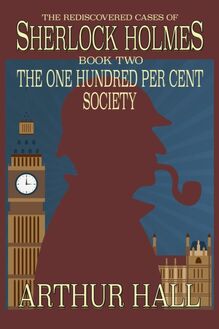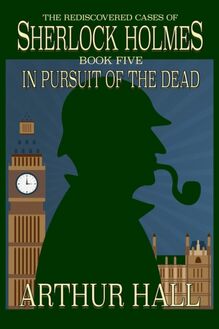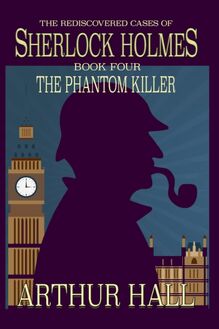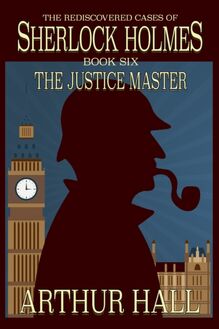-
 Univers
Univers
-
 Ebooks
Ebooks
-
 Livres audio
Livres audio
-
 Presse
Presse
-
 Podcasts
Podcasts
-
 BD
BD
-
 Documents
Documents
-
- Cours
- Révisions
- Ressources pédagogiques
- Sciences de l’éducation
- Manuels scolaires
- Langues
- Travaux de classe
- Annales de BEP
- Etudes supérieures
- Maternelle et primaire
- Fiches de lecture
- Orientation scolaire
- Méthodologie
- Corrigés de devoir
- Annales d’examens et concours
- Annales du bac
- Annales du brevet
- Rapports de stage
La lecture à portée de main
Vous pourrez modifier la taille du texte de cet ouvrage
Découvre YouScribe en t'inscrivant gratuitement
Je m'inscrisDécouvre YouScribe en t'inscrivant gratuitement
Je m'inscrisEn savoir plus
Vous pourrez modifier la taille du texte de cet ouvrage
En savoir plus

Description
Informations
| Publié par | Andrews UK |
| Date de parution | 25 mars 2021 |
| Nombre de lectures | 0 |
| EAN13 | 9781787057531 |
| Langue | English |
Informations légales : prix de location à la page 0,0350€. Cette information est donnée uniquement à titre indicatif conformément à la législation en vigueur.
Extrait
The Justice Master
The Rediscovered Cases of Sherlock Holmes - Book 6
Arthur Hall
Published in 2020 by
MX Publishing
www. mxpublishing.com
Digital edition converted and distributed by
Andrews UK Limited
www.andrewsuk.com
Copyright © 2020 Arthur Hall
The right of Arthur Hall to be identified as the author of this work has been asserted in accordance with the Copyright, Designs and Patents Act 1988.
All rights reserved. No reproduction, copy or transmission of this publication may be made without express prior written permission. No paragraph of this publication may be reproduced, copied or transmitted except with express prior written permission or in accordance with the provisions of the Copyright Act 1956 (as amended). Any person who commits any unauthorised act in relation to this publication may be liable to criminal prosecution and civil claims for damage.
All characters appearing in this work are fictitious. Any resemblance to real persons, living or dead, is purely coincidental.
A Visit From Inspector Lestrade
When my friend Mr Sherlock Holmes had established himself in his chosen profession of consulting detective, it was perhaps inevitable that his path would cross often with that of Scotland Yard. I can recall more than a few instances when his advice would be sought by the likes of Inspectors Lestrade, Gregson and Hopkins, among others, but none when he was unable or unwilling to assist their official enquiries.
Indeed, there were occasions when the Yard had become impatient with its own lack of progress and, having many other unsolved cases to pursue, discontinued or reduced its current investigation although the file remained open. One of these, in particular, remains uppermost in my mind so that, subject to my friend’s permission, I am able to refer to my notes of the time and disclose the tale to the public by means of my publisher.
Breakfast having been concluded, we sat in our armchairs with the pale light of an early autumn morning illuminating our sitting-room.
“We have a visitor I think, Holmes,” I said, lowering my newspaper.
“Doubtlessly it is Inspector Lestrade. His usual sequence of repeated rings of the door-bell is unmistakeable.”
“You are correct, for I heard his voice. Mrs Hudson precedes him on our stairs at this very moment.”
Holmes laid his copy of The Standard aside. “He probably seeks my advice on the Barrington case. Had he consulted me before, the affair would have been over a week ago.”
I was about to ask him to elaborate when, after a sharp rap on the door, it opened to admit our landlady. “Inspector Lestrade to see you, Mr Holmes.”
“Thank you, Mrs Hudson,” he acknowledged. Then, after the inspector entered and greetings had been exchanged, “Would you like tea, Lestrade?”
Our visitor, breathing heavily, declined politely and our landlady withdrew. I relieved him of his hat and coat and indicated that he should be seated in the basket chair. The seasonal coolness had necessitated that the fire be lit, and it crackled merrily in the grate as he settled himself.
Holmes regarded the inspector, who appeared to be experiencing some indecision, with interest.
“Well Lestrade, I perceive that you are here to relate to me a tale. Not the Barrington case after all, I think. It will be something that the Yard is having difficulty with, for your expression tells me that you are struggling with your pride. I know how the official force is reluctant to admit failure, but I’ll wager that it is a situation more uncommon these days.”
The inspector appeared to take heart from the somewhat veiled encouragement that my friend offered, and began to explain his presence haltingly.
“It’s true, Mr Holmes, that there are less unsolved cases than before, but what gets my goat is when an investigation is shelved because the Assistant Commissioner thinks that we are progressing too slowly or that newer crimes seem to him to be more important.”
“I can imagine your frustration, when you have already invested many hours to no end. You have, I trust, a particular instance in mind?”
“Indeed, sir, I have.”
A faint smile crossed Holmes’ face “I take it then, that there is a case that you have been ordered to abandon, and that you do so reluctantly. It concerns something about which you feel strongly, and you wish me to advise you or pursue it in your stead?”
Our visitor scrutinized the pattern on the carpet at his feet. “I do not like to see murderers escape justice, Mr Holmes. Not for any reason.”
“Nor do I.” My friend reached for his old briar and began to stuff it with coarse tobacco from the Persian slipper that he had placed near at hand. “Perhaps the best thing would be for you to enlighten us as to the details, and then we can decide what is to be done.”
Lestrade glanced at me, and I nodded my approval.
“Thank you, gentlemen. I confess to being deeply concerned. There are in fact no less than six murders unsolved, beginning in January of last year with Mrs Martha Berryfield. The following April saw Mr Raymond Tarwill as the next victim. Then came Mr Thomas Leroy in November, and Miss Grace Lightwell and Mr Donald Rearden a few months later in February. Finally, Mr Roger Carvell met his end in May.”
Holmes blew out a fragrant stream of smoke. “And you have reason to believe that the killer of each of these is the same? Is there then, a common link?”
“There is, Mr Holmes, and it was obvious quite early in my investigation. It is also, I suspect, why my superiors have discontinued my enquiries with so little regard.”
“Pray share it with us.”
I saw that Holmes’ interest was aroused, for his eyes glittered. We both leaned forward in our chairs so as to miss nothing of Lestrade’s explanation.
“Every one of those victims, without exception, was released from prison shortly before their demise and after serving a sentence for a capital crime.”
“Extraordinary. Some sort of revenge crusade, perhaps.” Holmes suggested.
“That was one of my first considerations. Unfortunately, the enquiry led nowhere.”
“That is unfortunate. I assume you have brought more details with you?”
“Indeed, sir.” Lestrade produced his notebook from his pocket.
“You were confident then, that I would agree to assist you.” My friend smiled again after knocking out his pipe and placing it aside.
“We are no longer newly acquainted, Mr Holmes. I have come to know something of your ways, and to appreciate your methods.”
“Quite so. Watson, kindly take up your own notebook and write down the salient points from what the inspector has to tell us.”
I complied instantly and, after riffling through the pages, Lestrade began:
“In January of last year, Mrs Martha Berryfield was released from Holloway. She had spent less than a year of a life sentence for poisoning her husband after suspecting, wrongly it seems, that he had begun a friendship with another woman. As it happens, the woman in question was the wife of Viscount Ferrersly, who would have none of this since he trusts his wife absolutely. It was, in fact, the Viscount, curiously enough, whose influence caused the death sentence of Mrs Berryfield first to be commuted, and then to be quashed on appeal. Shortly after her release, Mrs Berryfield was found strangled near her home.”
I think my thoughts must have been apparent from my expression. Lestrade looked at me strangely, but my friend understood at once.
“Watson does not approve of the rich and powerful manipulating justice for their own ends,” Holmes explained.
“Nor do I,” the little detective responded, “but it is the way of the world.”
“Quite, but pray continue.”
“During the following April,” the inspector resumed, “A certain Mr Raymond Tarwill, the owner of a glass-eye manufacturing concern, was acquitted of murdering his business partner by pushing him in front of a speeding carriage. He was able to employ the highly-skilled defence solicitor, Mr Timothy Quirk-Rollason, who apparently showed reasonable doubt as to his guilt. Less than a week later, Tarwill was shot in the head from a passing coach as he left his club.”
Again, I believe that both men were aware of my disapproval, given that I had identified the circumstances correctly. During our association, Holmes and I had encountered many instances where the accused would have justifiably served a long prison sentence or been hanged, were it not for the convincing and insistent manner of a competent defence lawyer. I could not reconcile this with my faith in British justice, but I could think of no way that it would ever change.
“Next,” Lestrade continued, ‘there was Thomas Leroy, last November. He was a small-time thief and well-known to us at the Yard. Inspector Gregson and myself suspected him of murdering a merchant in the Old Kent Road but again, he was acquitted on the testimony of four witnesses. I knew them all, and would have bet my right arm that they were lying but nevertheless, Leroy would be walking the streets of London today had not our killer put a bullet in his skull eight days afterwards.”
“You are satisfied,” Holmes enquired again, “that these killings were carried out by the same perpetrator?”
“There can be no doubt of it, Mr Holmes. We have ascertained that the weapon that killed Tarwill, Leroy and others that I have yet to mention to you, is one and the same. In February of this year two prisoners who had their capital sentences commuted to long prison terms were finally released, now quite elderly of course and their crimes long forgotten by the public. Donald Rearden was shot like the others and Grace Lightwell was found strangled, both within a fortnight of regaining their freedom. Nor is that the end of this. May saw the shooting, as he walke
-
 Univers
Univers
-
 Ebooks
Ebooks
-
 Livres audio
Livres audio
-
 Presse
Presse
-
 Podcasts
Podcasts
-
 BD
BD
-
 Documents
Documents
-
Jeunesse
-
Littérature
-
Ressources professionnelles
-
Santé et bien-être
-
Savoirs
-
Education
-
Loisirs et hobbies
-
Art, musique et cinéma
-
Actualité et débat de société
-
Jeunesse
-
Littérature
-
Ressources professionnelles
-
Santé et bien-être
-
Savoirs
-
Education
-
Loisirs et hobbies
-
Art, musique et cinéma
-
Actualité et débat de société
-
Actualités
-
Lifestyle
-
Presse jeunesse
-
Presse professionnelle
-
Pratique
-
Presse sportive
-
Presse internationale
-
Culture & Médias
-
Action et Aventures
-
Science-fiction et Fantasy
-
Société
-
Jeunesse
-
Littérature
-
Ressources professionnelles
-
Santé et bien-être
-
Savoirs
-
Education
-
Loisirs et hobbies
-
Art, musique et cinéma
-
Actualité et débat de société
- Cours
- Révisions
- Ressources pédagogiques
- Sciences de l’éducation
- Manuels scolaires
- Langues
- Travaux de classe
- Annales de BEP
- Etudes supérieures
- Maternelle et primaire
- Fiches de lecture
- Orientation scolaire
- Méthodologie
- Corrigés de devoir
- Annales d’examens et concours
- Annales du bac
- Annales du brevet
- Rapports de stage









